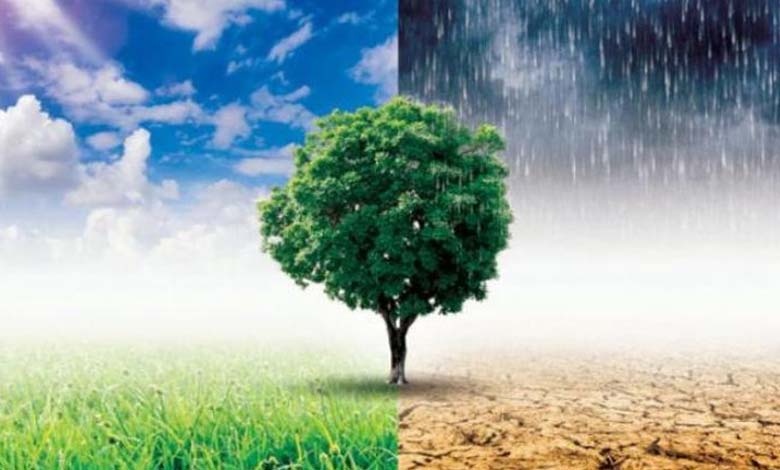Climate Change Accelerates… Are There Solutions?

Climate change is accelerating at an unprecedented pace; what are the proposed solutions?
Between the 1960s and 1980s, the global average temperature rose by 0.2 degrees Celsius. This was according to a study published in the journal ‘Science’ in August 1981. At that time, researchers linked the temperature increase to global warming caused by an increase in carbon dioxide levels in the atmosphere, explaining that this global warming was a result of human activities. During that period, environmental movements had begun calling on decision-makers to take necessary actions to protect our planet.
Seeking Solutions However, the temperature continued to rise until the Paris Agreement emerged in 2015, entering into force in 2016. The agreement calls on the parties to the United Nations Framework Convention on Climate Change (UNFCCC) to take necessary actions to prevent the average global temperature from exceeding 1.5 degrees Celsius above the pre-industrial era and to achieve net-zero emissions by 2050. Despite the parties agreeing to this goal, in 2023, the highest recorded temperatures in history were registered, with a global average temperature increase of 1.48 compared to the pre-industrial era.
Acceleration In November 2023, an international research group published a study warning of the acceleration of the greenhouse effect. It indicated that, given the geopolitical approach at present and the world’s handling of greenhouse gas emissions, the average global temperature is expected to exceed 1.5 degrees Celsius compared to the pre-industrial era during the 2020s. They explained that over the last 150 years, Earth’s temperatures have risen compared to the last 2000 years.
Are There Solutions? Certainly, there are many attempts to protect our planet, with the most prominent being:
- Fair Transition to Renewable Energy : The world needs energy for progress and to facilitate life, but reliance on fossil fuel-derived energy contributes to raising levels of greenhouse gases in the atmosphere. Therefore, the solution of transitioning to renewable energy has been proposed. During the 28th Conference of the Parties on Climate Change (COP 28) in Expo 2020 Dubai, about 130 countries pledged to triple their adoption of renewable energy to accelerate a fair transition.
- Reducing Food Waste : Our consumption of both animal and plant-based foods is increasing day by day, especially with the growing global population. However, the major problem is that overall food production contributes to the release of greenhouse gases, and scientists expect it to account for 60% of total human emissions by 2050. Therefore, it is necessary to reduce food waste and only purchase necessary goods, especially since humans waste up to 30% of global food production.
- Halting Deforestation and Ecosystem Rebuilding : Forests play a crucial role in absorbing carbon dioxide from the atmosphere, and their removal significantly contributes to climate change and raises greenhouse gas levels in the atmosphere. Illegal tree cutting often causes harm to these forests or ecosystems.
- Addressing Poverty and Inequality : Achieving social justice, particularly in the distribution of poverty, especially among women, children, the elderly, people with disabilities, and indigenous populations, is an essential part of climate justice goals. Those who suffer from social marginalization are most affected by the effects of climate change. Therefore, providing resources and capabilities to help them confront the biggest threat facing humanity at present is crucial.
- Limiting the Risks of Natural Disasters : Investing in reducing the risks of natural disasters, especially those linked to climate change, protects communities and enhances their ability to mitigate the effects of disasters. Therefore, limiting the impacts of these disasters reduces their negative effects, especially since returning to net-zero is currently challenging. However, we can help the most vulnerable populations activate emergency systems.
- Fair Financing : Financing remains the most sensitive issue on the negotiation table whenever parties meet to find solutions to climate change. The perennial question remains: who will pay? Answering this question complicates the adoption of radical solutions and quicker steps that keep pace with the speed of climate change. Despite some wealthy nations initiating financing for climate action at COP 28, even though it is not binding, the position of historically responsible advanced nations remains unclear.
In reality, there are many solutions, but the implementation is slow, especially with the conflicts and crises the world faces today. Humans still need to unite for a better future for the generations to come.












